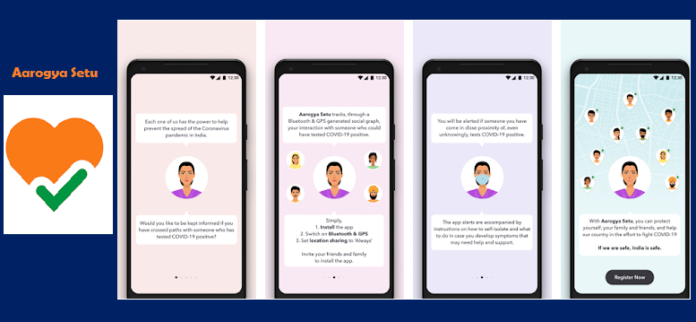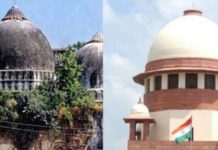The MHRD on the 3rd of April directed schools and colleges to tell parents of the students to download the Aarogya Setu app. Railways have also directed 13 lakh employees and their families to download the app. PM Modi had also asked BJP party members to “to persuade 40 people to install the Aarogya Setu app and tell them about it.” Most mobile users got a message in the next two days to download the app to help them tackle COVID-19. The website claims that the app has gotten 15 million downloads.
While the BJP leaders along with the very suspicious World Bank also lauding the app, the aggressive push to download this app is worrying especially because of the privacy concerns it raises.
Does Arogya Setu work as proclaimed?
On April 3, the national general secretary of the Bharatiya Janata Party. Ram Madhav, tweeted asking people to download the Aarogya Setu App, saying that it allows the government to “access your location always”.
There is no knowing how the data will be used and for how long. Data collection could become permanent in the country because the government may not roll back its policy.
The Arogya Setu app was launched by the government to self assess the risk of getting Coronavirus. The app uses GPS and Bluetooth to see if you have come into contact with anyone who might have tested positive for the virus.
This is the first drawback for the app. India has currently done only 1,30, 000 tests for a 1.3 billion population. This means there have been 93 tests done for 1 million people and only 3 positive cases in a million. How then, can this App be an accurate or even semi accurate measure of self assessing risk.
The App requires your Bluetooth, your GPS, and your mobile phone number to track whether or not you have been in contact with someone who has been tested positive or if you are in an area that has been marked as being high risk. This is the second worrying part about the app. The government can track all your movements and store this data and this can be used against people in the future.
The app then asks you your name, gender, countries traveled in the last 30 days, and the profession of the person. The options under profession are limited. Collection of this data, with AI and Big data Analytics could mean that the government uses this app to discriminate against certain groups. The government does not require this information to see whether someone has come in contact with a COVID-19 positive case. The mere fact that they are collecting this data means that this could be used as a tool to keep check on marginalised communities. Alarm bells should be ringing for everyone because there is real danger of this data being used for things apart from health care.
This app then shows whether you are in a safe zone or a high risk zone. It tells you do’s and don’ts when you are zone has been determined. This app is being promoted with AYUSH’s self care measures, which include doing yoga and drinking turmeric milk. The worry with such a promotion (together) is that people will believe ayurvedic solutions can solve problems even though this has not been proven.
Further, a test done by TechCircle found that the app does not alert low risk users for a long period and that the test in the app can be taken multiple times and the results vary for each time.
Arogya Setu and Data protection
Delhi government handed over 25,429 phone records over to the Delhi Police to track people who have been ordered by the government to quarantine actually do so. The data being sent to law enforcement agencies has no legal backing and there is no protocol to ensure that the data is not being misused. The same risk lies with Arogya Setu. The Karnataka government asked people who were in quarantine to send selfies of themselves through an app so that the government could monitor whether the quarantine was being enforced. This kind of surveillance if not backed by legal safeguards can pose as a threat to the people
There has been no legal mechanism that has been created in this period that allows the data usage to be kept in check and to ensure that the data is not used to endanger the population. The current government’s track record seems to have set a dangerous precedent. The government has removed safeguards from the Privacy bill and now can at any time access private data or government agency data on grounds of sovereignty or public order, the government has argued that there is no right to privacy, and still has not passed the Data Protection Rights Bill.
There is no knowing how the data will be used and for how long. Data collection could become permanent in the country because the government may not roll back its policy.
The lack of oversight, legal backing, and efforts to reduce the chances of misuse of data can be threatening to groups that are on the margins. The lack of accountability and transparency in the entire process and functioning of apps like Aarogya Setu will put lakhs of people at risk.





























